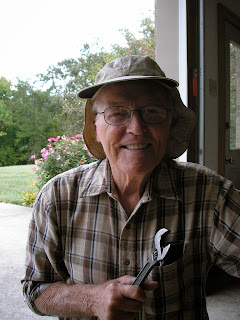Fiji is a beautiful country of over 300 islands. It is naturally surrounded by ocean reefs and the soothing, rolling ocean waves. The interior of the two largest islands, Viti Levu and Vanua Levu, have an abundance of mountainous freshwater streams and rivers due to the westerly winds that dump their precipitation on the mountains as they pass over the archipelago. The land in Fiji has a rich soil, too. You would be hard-pressed to find yourself starving in Fiji because many fruits, nuts and vegetables grow wild there. The weather is also mild. Occasionally a hurricane will hit the island group,
To be living in such a paradise, one would wonder if there were any mental health issues in their people, such as depression. Yet, in the later 1800's, when Fiji seceded its lands to Great Britain, the natives found themselves without a reason to live. There were no more tribal wars; there were no more fears. They didn't have to work because land owners rented out their land to Europeans for cultivation. All they did was collect rent, drink kava and talk about the good old days when human flesh was the main meal.
Basil Thompson, author of
The Fijians, did a study of the decay of custom in Fiji after the governance by Great Britain. He found ( along with many other people in the know) that the indigenous population was in a free-fall decline. The communal units just stopped reproducing despite huge leaps in health care. Basil's reasoning is simple:
" Having never known the struggle for existence that prevails in the crowded communities of the old world, he (Fijian native) was spurred into activity by the fear of annihilation, for upon his alertness his existence depended."
That annihilation referenced was the capture by a competing tribe and eaten. Their whole incentive for building moats, manufacturing poison arrows, carving that favorite war club and producing offspring to replenish their army of warriors was the way to protect their tribe from others. When the fear factor was eliminated - the British said, ' no more eating of humans'- , the Fijian native just didn't know what to do! Lethargy set in, the sex drive diminished and the sight of young mothers with their babies was hard to find.
Last night, I watched an episode of 48 hours about a young couple who made many millions in the stock market. They were so rich that they quit everything and built a house in Costa Rica high atop one of the mountains in the rain forest. Eventually, both of them went nuts, resulting in the murder or suicide of the husband. That case is still in the courts. They think the crazy wife did it. I couldn't help but wonder if their downward spiral towards depression was the result of having it all with no future goals. They were isolated, rich and just watched the birds and other wildlife all day from their glass walls.
I think there is a lot of good will in 'the chase', when you've set a goal and work hard to achieve it. Or, you could be overcoming some serious illness or financial hardship. Once you've made it through the gauntlet, you feel pretty good as if maybe you have a new purpose for living. 'The struggle' can have some redeeming qualities. Sometimes 'having it all' can be disastrous.
Here's the link to watch 'Paradise Lost', the 48 hour episode that profiled the couple that had it all:
http://www.cbsnews.com/news/48-hours-the-death-of-john-bender-suicide-accident-or-murder/


















